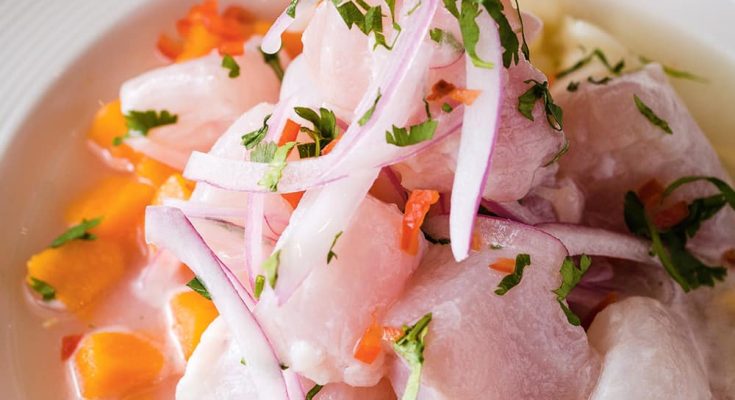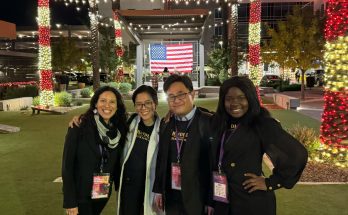Peruvians cannot fly or teleport like any other mortal, but our country has a superpower that makes us proud: gastronomy. How can the Peruvian restaurant named the best in the world and a Peruvian restaurant in Arizona contribute to the promotion of one of the country’s most celebrated virtues?
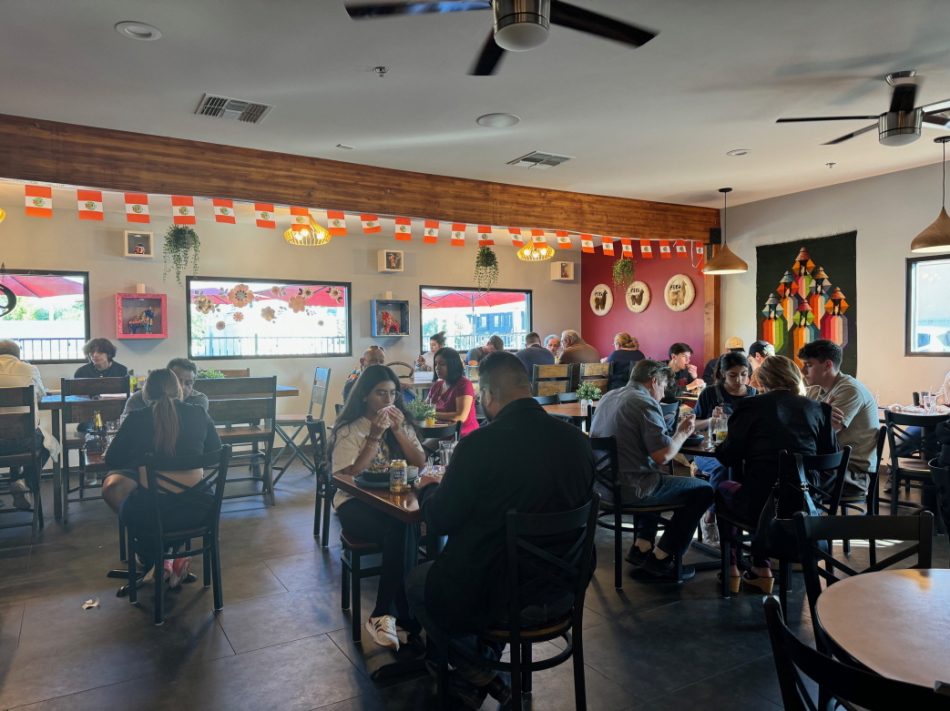
El Chullo Restaurant & Bar initially was conceived to be a beauty salon and spa as big as the one Esperanza Luzcando owned in Lima. In 2013, she moved to Phoenix with the dream of starting a business where her husband and four children could work. But only her eldest daughter Karen, a hairstylist and makeup artist, had the qualifications to work at a beauty salon, so Esperanza reconsidered her plan. It was her second child Omar, a chef, that suggested that the entrepreneur opened a Peruvian restaurant instead. “My son mentioned there were only two such establishments in the whole city and wondered if they would survive. I asked myself why they wouldn’t, considering how remarkable Peruvian food is. So I went to those places with my husband. He said: ‘“Gordita, you should open your restaurant because you cook magnificently’. My father used to tell me the same thing,” she recalls.
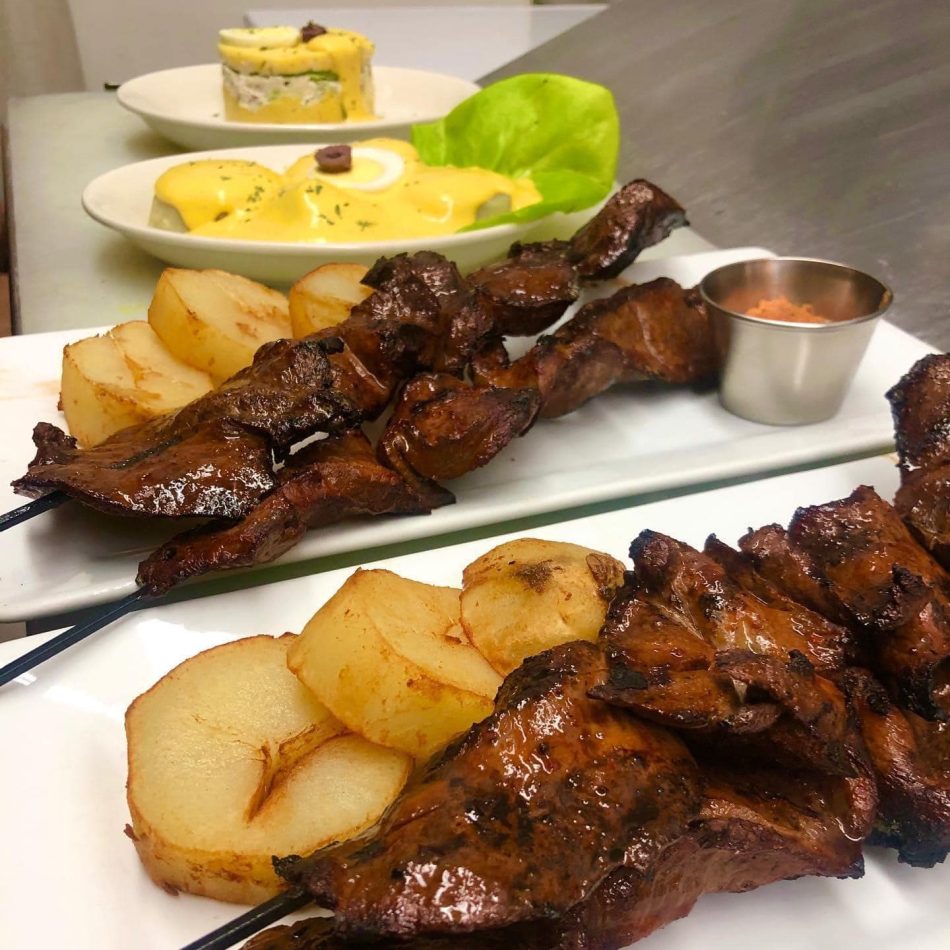
The skills of every family member came into play around the new business. While Esperanza, 58, was in charge of the kitchen, Omar was responsible for El Chullo’s menu highlighting the wonders of his mother’s recipes. Her husband José, an accountant, managed the restaurant’s finances. Karen learned the ropes of the business, and the other daughter, Esperanzita, helped with the desserts. José Daniel, the youngest son who was 17 years old, helped with tasks like washing the dishes. The Luzcando family started serving customers in January 2014. Since then, they have been promoting Peru through its cuisine.
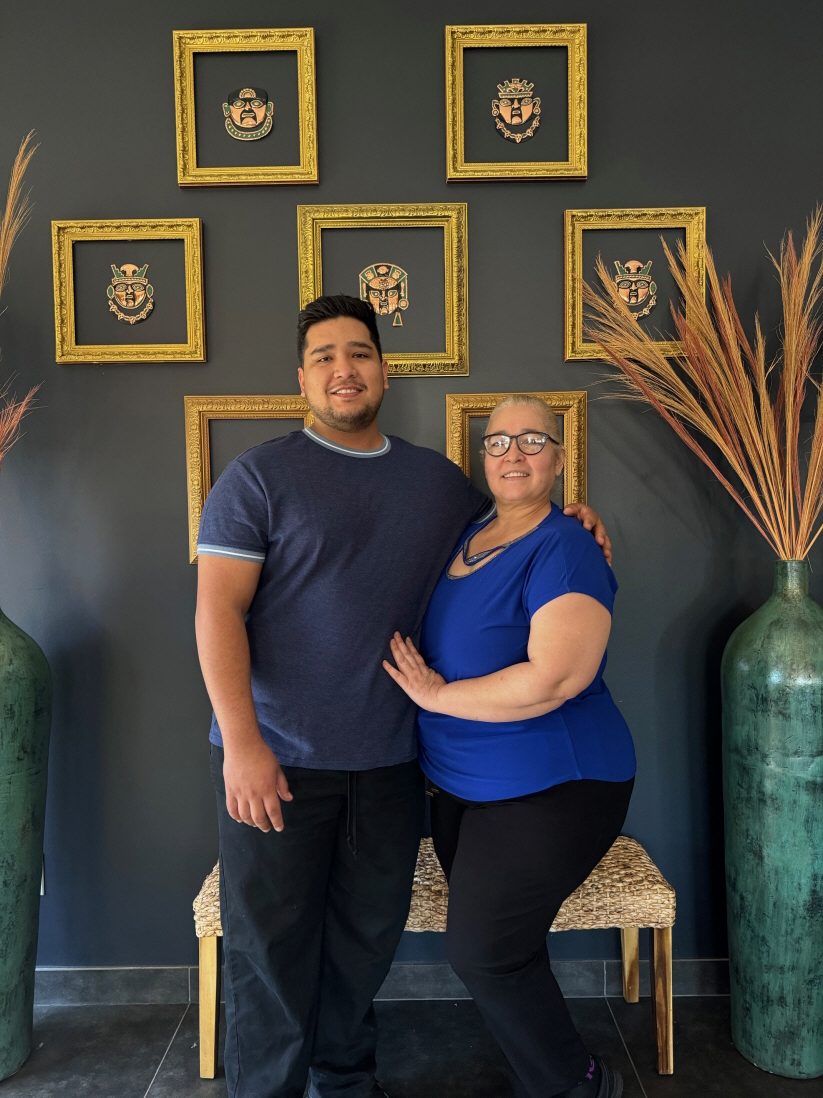
“Gastronomy plays a vital role in Peruvians’ identity. It is a fundamental factor in promoting Peru’s image worldwide and a significant motivator that makes people visit our country. When travelers think about visiting Peru, they also take into account how good they will eat during their stay,” explains Daniel Cavero, head of the Image and Country Brand Strategy Office at the Peruvian Commission for the Promotion of Exports and Tourism (PromPeru). According to the Tourism Intelligence Area, by the end of 2023 it is estimated that of the 2.5 million international tourists visiting Peru, 88,000 will be drawn by the country’s gastronomic offerings.
Last July, Esperanza opened a second El Chullo location in Phoenix’s Melrose District. The original one serves traditional homemade Peruvian food. The new branch, managed by José Daniel, serves a different proposal: It presents a fusion of Peruvian and Japanese food, known as Nikkei cuisine. “I decided to offer it because people already knew the classic Peruvian dishes,” ensures Esperanza.
The Luzcandos believe the best way to promote a country is through food because it brings people together. El Chullo’s main challenge is to educate customers on Peruvian gastronomy and its ingredients. Peruvian cuisine is steeped in history, and each dish on the menu reflects this rich cultural heritage.This is why Peruvians take such pride in their food.
“We want to inspire people to go to Peru. Americans are intrigued about the country. At the restaurant, they experience a little bit of it. I tell them stories of when I lived there. Now is the time for them to make their own stories,” comments José Daniel, who makes the time to talk to the clients as his mother does.
The first time Tirion Boan tried Peruvian cuisine was during her junior year at college when she traveled to Cusco. The Food Editor at Phoenix New Times was amazed by its colorful, fresh, varied, diversified ingredients and flavors. The opening of El Chullo’s second location was fantastic news to her. “I was so excited to see it finally open. It is a beautiful restaurant. They got cool murals and little trinkets and decorations from Peru. They had great cocktails like pisco sour and dishes that showcased some of the Asian influence that Peruvian food has. It is great that they are highlighting this so people can learn about the influences on Peruvian food. Most customers probably do not realize there are a lot of crossovers,” says Tirion.
Last week, Peru was recognized by the World Travel Awards as the World’s Leading Culinary Destination 2023. The news was not surprising for Peruvians, as the country has been winning the category since 2012 except for 2020 due to the pandemic. The World’s 50 Best Restaurants 2023 also announced that the best restaurant is from Peru. Lima’s Central is owned by the renowned chef Virgilio Martínez. His second restaurant, Mil, located in Cusco, won the World’s Best Fine Dining Experience 2023 in the World Culinary Awards. These recognitions are just the latest on a long list of awards Martínez has received for his exquisite cuisine.
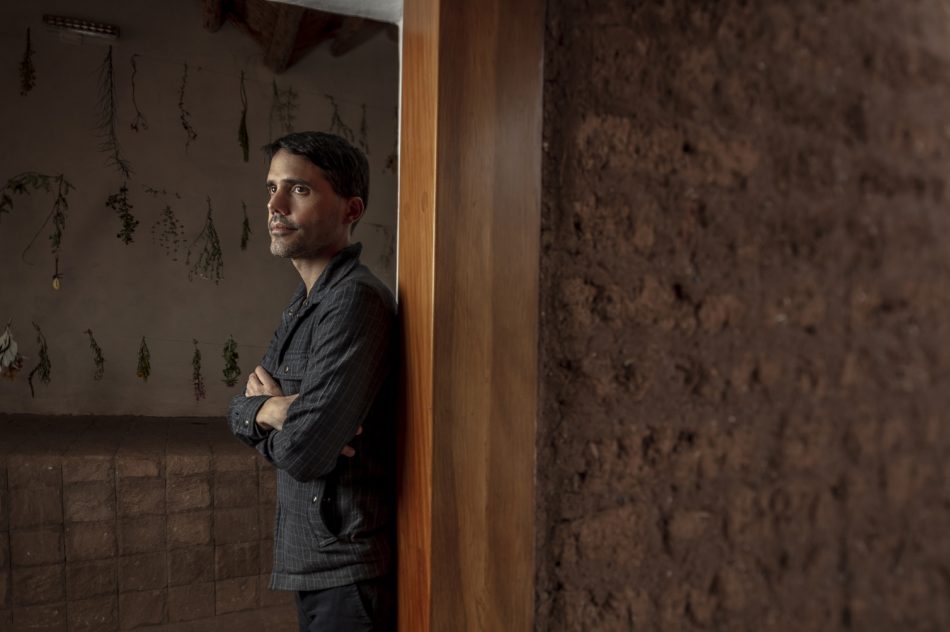
Why is Peruvian gastronomy recognized worldwide? What does it say about Peru and its people? The chef of the world’s best restaurant asserts that Peruvian food is not a trend. Virgilio assures it reflects the country’s diversity, unique and healthy products, ancestral dishes, and delicious and distinctive flavors. “It unites us as Peruvians; it is a versatile cuisine based on sharing. It also shows our generosity, capacity for enjoyment, and ability to live well with the natural gifts of the Earth that belong to us and that we protect.”
Between 80% and 90% of Central’s clients are foreigners, especially from the U.S., France, Spain, Hong Kong, Singapore, Brazil and Chile. Up to 15 nationalities daily enjoy Virgilio’s contemporary and creative approach to Peruvian food. Many of them organize their trip to Lima exclusively to go to Central. “We greatly value these clients, who demonstrate a deep appreciation, respect and curiosity for our gastronomy, driving us to improve constantly.”
Peru has a rich culinary heritage that dates back to pre-Hispanic times. Over time, foreign cultures such as Chinese, African and European have influenced and fused with the local cuisine, creating an exceptional culinary scene.
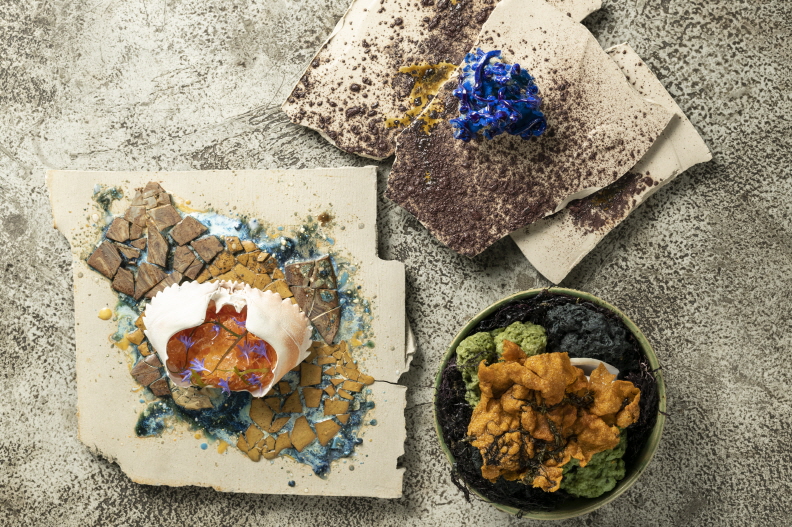
“Food is intrinsically tied to heritage, culture and history. When people experience it, it incentivizes them to want to learn more about a place,” Boan says. She is curious about food she has never tried before. She wonders how it is prepared, how differently it would be served in the country of origin and what influences have come into making that dish. Then, as a journalist who writes about restaurants, she is interested in the people making the food. “Their stories give so much insight into a culture and our patchwork culture of Phoenix. These restaurants and the people behind them make up our food scene.”
Tirion loves ceviche, as do Virgilio and Esperanza. Yesterday, this typical Peruvian dish, prepared with raw fish marinated in lime, was declared an Intangible Cultural Heritage of Humanity by UNESCO. Ceviche takes both chefs back to their childhoods. Its flavor inspires Virgilio, while Esperanza is proud of her recipe and the fact that she has gotten her dad’s seasoning.
Among Esperanza’s specialties are lomo saltado and pescado a lo macho. She enjoys preparing lomo saltado, a beef stir fry, because it is cooked in a wok and creates a spectacular fire. Pescado a lo macho is one of her customer’s favorites, and it is also her preferred dish. “It contains ingredients that I like, such as fish, seafood, yellow chili, and lime, which combine perfectly. I use Peruvian products, although some are expensive or difficult to find, to give my clients an authentic Peruvian experience.”
On Jan. 3, 2024, El Chullo will celebrate its 10th anniversary. Over the past decade, Esperanza has been successful in her mission to introduce Peruvian gastronomy, culture, and traditions in Phoenix. She takes pride in making “gringos” fall in love with her food and instilling in them a keen interest in Peru. With a broad smile, she also reveals that she has convinced several diners to visit it. She has achieved this not only through word of mouth but through events she organizes that include typical dances and the sale of Peruvian delicacies.
Esperanza Luzcando and Virgilio Martínez show that promoting a country is like slow-cooking a dish. It requires hard work, a lot of patience, a personal touch but the result makes all the effort worth it.

